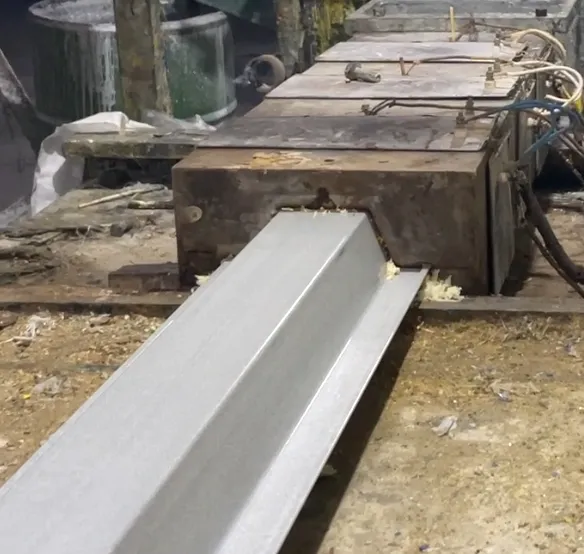loading...
- No. 9, Xingyuan South Street, Dongwaihuan Road, Zaoqiang County, Hengshui, Hebei, China
- admin@zjcomposites.com
- +86 15097380338
- Welcome to visit our website!
pressure tank
Understanding Pressure Tanks Functionality, Applications, and Maintenance
Pressure tanks, also known as pressure vessels or pressurized tanks, are essential components in various industrial, commercial, and residential applications. These tanks are designed to store liquids or gases at a pressure substantially different from the ambient pressure, ensuring safe and efficient operation. They play a critical role across multiple sectors, including water treatment, food and beverage, pharmaceuticals, and fuel storage. This article delves into the functionality, applications, and maintenance practices associated with pressure tanks.
Functionality of Pressure Tanks
The primary function of a pressure tank is to maintain a constant pressure and ensure a reliable supply of fluids or gases. These tanks can either be vertical or horizontal and are constructed using materials that can withstand high pressure, such as steel or composite materials. The design of a pressure tank is governed by strict engineering standards to ensure safety and efficiency.
When a liquid or gas is pumped into the tank, a certain volume is stored under pressure. This pressure creates a driving force that pushes the fluid out of the tank when required. As a result, pressure tanks are equipped with pressure regulators and relief valves that help maintain optimal operating pressure and prevent over-pressurization. The ability to store energy and provide a consistent flow of fluids makes pressure tanks invaluable in systems where demand fluctuates.
Applications of Pressure Tanks
Pressure tanks serve a multitude of applications across various industries. Some common uses include
1. Water Supply Systems In residential and agricultural settings, pressure tanks are often used in well water systems. These tanks ensure a steady water supply by maintaining pressure in the system, preventing the need for pumps to run continuously.
2. Hydraulic Systems In manufacturing and construction, pressure tanks are critical for hydraulic operations. They store hydraulic fluids under pressure, enabling efficient operation of machinery and equipment.
3. Beverage and Food Industry In the food and beverage sector, pressure tanks are used for carbonating products, storing ingredients, and conducting processes that require precise pressure control, such as fermentation.
4. Chemical Processing Pressure tanks are vital in chemical production, where they store reactive and flammable substances. Safety features are crucial in this application to prevent leaks and explosions.
pressure tank

5. Fuel Storage In fuel management systems, pressure tanks are used to store various fuels safely. They must meet stringent regulations to prevent leaks and ensure safe dispensing.
Maintenance of Pressure Tanks
Regular maintenance of pressure tanks is essential for safe and efficient operation. Neglecting maintenance can lead to catastrophic failures, leaks, or explosions. Here are some best practices for maintaining pressure tanks
1. Routine Inspections Regular visual inspections help identify any signs of corrosion, leaks, or structural damage. It’s vital to check safety equipment like pressure relief valves to ensure they are functioning correctly.
2. Pressure Testing Periodic pressure tests are necessary to verify the integrity of the tank. This includes checking for any signs of weakening metal or welds that could lead to failure.
3. Cleaning Over time, sediment and contaminants can accumulate in pressure tanks. Periodic cleaning is necessary to prevent buildup that could affect the quality of the stored substance or the efficiency of the system.
4. Documentation Keeping records of maintenance activities, inspections, and repairs is important. This documentation helps track the tank's performance and ensure compliance with safety regulations.
5. Professional Servicing For complex systems or significant repairs, it is advisable to hire certified professionals who understand the regulations and can carry out the work safely.
Conclusion
Pressure tanks play a vital role in various applications by ensuring safe and efficient storage of fluids and gases under pressure. Understanding their functionality, applications, and maintenance is crucial for anyone involved in industries that utilize these systems. By following best practices for maintenance, operators can ensure the long-term safety and reliability of pressure tanks, thereby protecting both assets and personnel.
-
GRP Structures: The Future of Lightweight, High-Performance EngineeringNewsJun.20,2025
-
FRP Water Tank: High-Performance Storage for Corrosive and Clean Water SystemsNewsJun.20,2025
-
FRP Square Tube: The New Industry Standard for Chemical and Structural ApplicationsNewsJun.20,2025
-
FRP Pultruded Profiles: The Ultimate Choice for Lightweight Structural StrengthNewsJun.20,2025
-
FRP Handrails: The Safer, Smarter, and Stronger Choice for Modern InfrastructureNewsJun.20,2025
-
FRP Grating: The Smart Solution for Durable, Lightweight Industrial FlooringNewsJun.20,2025
-
Why Choose a Galvanized Water Tank for Your Storage NeedsNewsMay.21,2025
